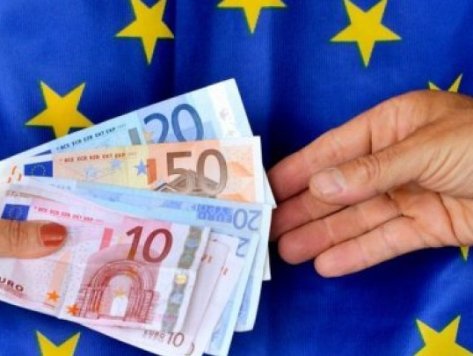Euro MPs have voted overwhelmingly for a grant to workers in Belgium, France and Spain.
Over 3,100 workers were made redundant by Peugeot Citroën Automobiles (PSA) in France and crude steel producer Carsid SA Belgium because of “major structural changes in world trade patterns due to globalisation”.
The aid worth €15.2 million comes from the central EU budget of which Britain is a net contributor.
The French car maker applied for aid when Peugeot Citroen made over 6000 workers redundant at its plants in Aulnay and Rennes, citing rapid growth in the market share of rival companies.
Only 81 MEPs, including all UKIP representatives, voted against the aid. It was awarded €12.7 million for 2,357 people who were deemed to be eligible to receive the aid.
The aid request for PSA is the twenty-second made for a European car maker.
In addition, €911,934 was given to Carsid SA for 752 people out of the 939 who were made redundant. Operating in the former coal mining and steel making area around Charleroi, Carsid was hit by the decline in the EU share of the world crude steel market and by waning demand for steel in the automotive and construction sectors. The redundancies aggravate unemployment in an area where it stood at 21.5 percent in 2012, almost double the national rate of 11.2 percent.
In addition, Ford in Genk and ten of its suppliers have made 512 workers redundant in a first wave of redundancies leading up to the planned closure of the plant at the end of 2014. There are to be two further waves of redundancies, totalling over 7,000, before the plant ceases production altogether. The shutdown is due to a decline in passenger car production and in sales of new cars in the European Union.
Of the 512 workers made redundant in the first wave 479 would qualify for EGF aid worth €570,945.
The decisions may upset workers and their families from the Ford plant in Southampton who lost their jobs due to a loan by the European Investment Bank, raised on the back of revenue generated by British tax payers, which moved the production of the Transit van to Turkey.
The £80bn cheap loan was signed off by the EIB’s governors which include British Chancellor George Osborne.
Spain applied for EGF aid to help 300 of the redundant workers and was granted aid worth €1.019 million. Over 600 jobs were lost at 142 metal producing firms in the Spanish region of Comunidad Valenciana, due to shrinking demand for metal products and a general decline in metal production. Across the region, 43 percent of metal workers’ jobs disappeared as metal product manufacturing declined by 36.6 percent between 2008 and 2013.
UKIP MEP Ray Finch, who campaigned against the closure of the Ford plant said:
“The use of UK taxpayer’s money to fund European unemployed car workers including Ford workers is, particularly after Ford took UK tax payer’s money to close its British transit factory and shift production to Turkey, a absolute disgrace.”
Mark Littlewood from the Institute of Economic Affairs slammed the decision:
“Competition is a normal and healthy part of business that benefits consumers, and the EU should not be bailing out companies that are finding it difficult to compete in the market. By doing so, the EU risks undermining competition by discriminating against successful firms.
“Such action also risks sustaining lame-duck businesses that would otherwise go bankrupt, thereby diverting resources from more productive firms that generate growth.”

COMMENTS
Please let us know if you're having issues with commenting.